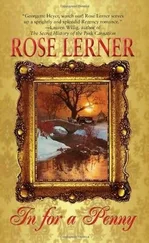Roberts made the pause that meant “Go on.”
* * *
He had told the story so many times that slight variations crept in. He couldn’t recall the exact sequence of events. For instance, had he found a message the day after the extractions saying he should call the dentist as soon as possible, or did he answer a call directly from the dentist that afternoon? Either way, the day after the procedure, a week before his scheduled follow-up, he was standing beside the window, staring at the clock tower on Hanson Place, cell phone to his ear, listening to the dentist say there was a problem with his X-ray. “There is a problem with my X-ray,” he repeated with his sore mouth. The dentist said he happened to be reviewing the file and there was an area that concerned him. “You are concerned about my teeth,” the author confirmed. “I want you to see a neurologist,” the dentist replied. There was a full beat before the dentist said, “Everything will be fine, I think.”
There was a poster of Picasso’s dove in the first neurologist’s waiting room, watercolors of Manhattan sunsets where they sent him for blood work, photographs of orchids where he waited for his CAT scan, his MRI.
Finally he got in to see Dr. Walsh, famous in his field. Silver hair, rimless glasses, a purple tie under the white coat. He was always almost smiling, at least the corners of his mouth were slightly upturned, because his blue eyes were narrowed in a perpetual squint, enabling him to express a kind of optimistic concentration without seeming patronizingly upbeat.
When Dr. Walsh told him the findings, the author was looking at a print of a painting of a beach scene: two empty white wooden chairs facing the sea, a small sailboat in the middle distance. He had a “mass,” what is called a meningioma, located in his cavernous sinus; it appeared benign.
“Who chooses this art?” the author wanted to ask.
“The art?” Dr. Walsh would further narrow his eyes.
“Do you choose this stuff or does the hospital buy it in bulk? Where does it come from?”
Dr. Walsh would swivel in his chair to see the image the author was staring at, then turn back to the author, but not speak.
“I understand the desire to have some decorations that indicate this isn’t just a hospital room, that a patient isn’t just a pathologized body, that this isn’t purely the realm of science. I understand that the exclusive criterion you or the institution would have for selecting an appropriate image would be that it’s inoffensive — if not actively calming, at least not agitating. It’s supposed to prove that you are neither a machine nor an eccentric because it nods blandly to established cultural modes, the medium of painting and the clichéd instance of it. They are images of art, not art.”
“Three doctors at the hospital share this consultation room,” Dr. Walsh might respond, adjusting his wedding band.
“Let’s try to stay focused,” Liza would say if she were there, placing a hand on his shoulder.
“But the problem, one of the problems”—cold spreading through him, as when they’d injected him with contrast dye—“is that these images of art only address the sick, the patients. It would be absurd to imagine a doctor lingering over one of these images between appointments, being interested in it or somehow attached to it, having his day inflected by it or whatever. Apart from their depressing flatness, their interchangeability, what I’m saying is: we can’t look at them together. They help establish, deepen, the gulf between us, because they address only the sick, face only the diagnosed.”
Instead, he’d asked, a tremor in his voice, “Am I going to be okay?”
“It is entirely possible that the tumor will never grow larger and that it will remain asymptomatic,” Dr. Walsh explained.
“Is there a surgical option?” he heard himself say.
“You could consult with a surgeon, but I don’t believe so. No.” Dr. Walsh stood, walked to the adjacent wall, and slipped an X-ray onto the illuminator, which he switched on. “I believe the location of the neoplasm rules that out.”
“So what do I do?” He could not make himself join Dr. Walsh at the illuminator, would not look at the cross-section of his skull.
“Well, we don’t really do anything right now.” Dr. Walsh sat back down. “Except follow you closely. We will develop a strategy if and when symptoms present.”
Headaches, disordered speech, weakness, visual disturbances, nausea, numbness, paralysis. Prosopagnosia, pareidolia. The softening sky reflected in the water. Silver but appearing rose gold in that light. The momentary sense of having traveled back in time.
* * *
Say they join his family — parents, brother and sister-in-law, and their boys, two and five — on Sanibel Island, off the Gulf Coast of Florida, for the winter holidays.
It’s dark when they arrive at the rented beach house, turning onto a gravel drive. The warm air is redolent of jasmine, the surf audible, a sound he’s always found alien. He tries to remember the light snow that morning in New York, beads of precipitation on the oval window streaking as the plane took off.
The author carries his younger nephew, Theo, into the house, which smells vaguely of sunscreen, citrusy disinfectant. He walks with Theo, who has one thumb in his mouth and his free hand down the author’s shirt, up to the watercolors of seashells and starfish, recalling his confrontation with Dr. Walsh about medical art as though it had happened.
Theo finds and squeezes his nipple, which makes the author start and laugh; since Theo began to be weaned, he goes after the breast of anyone who carries him. He gives Theo a raspberry on his neck, which causes him to shriek with laughter, then puts him down and watches him waddle away toward his mother, who’s just entering with more bags, screen door slamming behind her. On the porch, Hannah is showing Cyrus her thumb trick.
Hannah goes upstairs to unpack, his brother and sister-in-law to establish the kids in their room. He sits with his parents drinking the Coronas the previous guests left in the refrigerator, his dad playing the cheap guitar he travels with.
“Have you been able to do any writing lately?” his dad asks, playing the chords of “The Golden Vanity,” a song he’d sung the author as a child.
“Just this.”
“I wouldn’t be able to write anything right now, either, if I were you,” his mom says. “With so much stress. But I really think you’re going to be okay.” The author looks at her. “I really do.”
He used to cry at the end of “The Golden Vanity,” when the boy who has managed to sink an enemy ship is left to drown in the ocean by a double-crossing captain, so his dad would improvise additional stanzas for the ballad in which the boy was rescued by a benevolent sea turtle and deposited safely on an island.
His nephews come running down the stairs in their pajamas, hair wet from the bath. His dad starts up a song about his two grandsons and their magical airplane pj’s.
His brother and sister-in-law follow. “Maybe your uncle will tell you a story,” his brother says, opening a beer.
“I know a story about the world’s biggest shark,” the author says. His sister-in-law had told him about Cyrus’s most recent obsession. “But I don’t know if the boys like sharks.” The boys insist loudly that they do.
The boys’ room is empty save for a rickety bunk bed on the off-white carpet, a large red suitcase open on the floor. He hears Hannah showering in the adjacent bathroom. The window is open; he smells the jasmine again. He lies down in the bottom bunk with Theo and stares up at Cyrus’s mattress. Cyrus is sucking audibly on the leg of the small stuffed “piggy” he still won’t sleep without. It takes the author a while to pick up the sound of the surf.
Читать дальше










